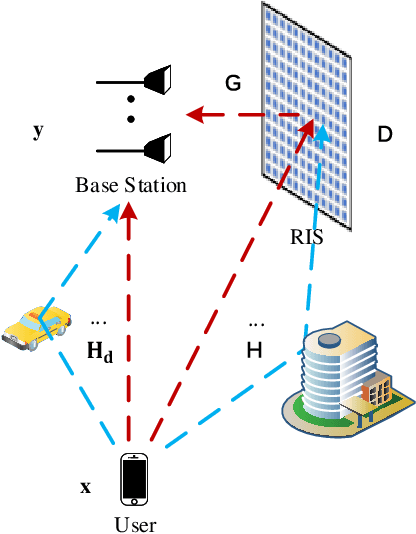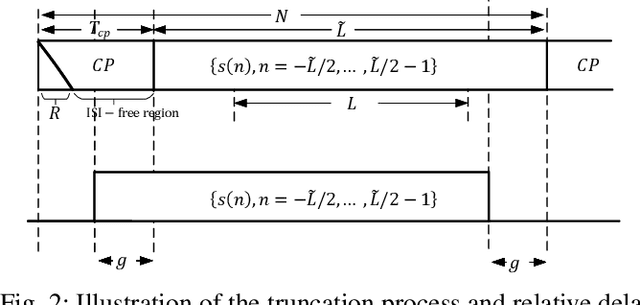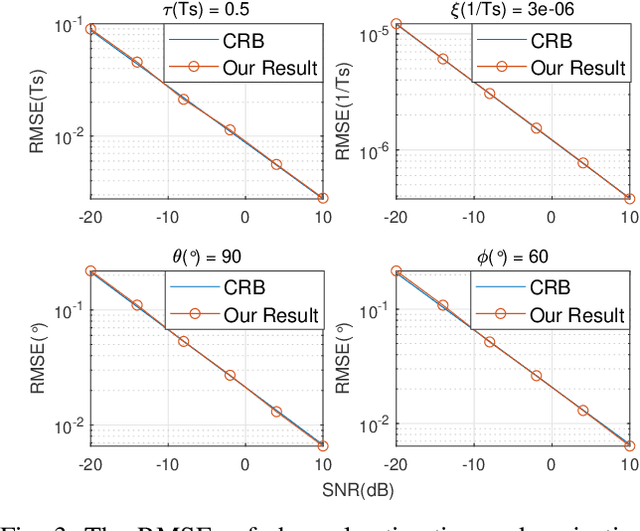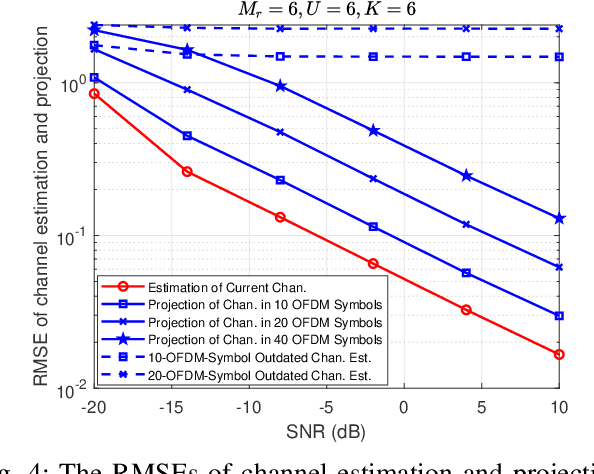Xuemeng Zhou
Channel Estimation and Projection for RIS-assisted MIMO Using Zadoff-Chu Sequences
Feb 21, 2022



Abstract:The reconfigurable intelligent surface (RIS) technology is a promising enabler for millimeter wave (mmWave) wireless communications, as it can potentially provide spectral efficiency comparable to the conventional massive multiple-input multiple-output (MIMO) but with significantly lower hardware complexity. In this paper, we focus on the estimation and projection of the uplink RIS-aided massive MIMO channel, which can be time-varying. We propose to let the user equipments (UE) transmit Zadoff-Chu (ZC) sequences and let the base station (BS) conduct maximum likelihood (ML) estimation of the uplink channel. The proposed scheme is computationally efficient: it uses ZC sequences to decouple the estimation of the frequency and time offsets; it uses the space-alternating generalized expectation-maximization (SAGE) method to reduce the high-dimensional problem due to the multipaths to multiple lower-dimensional ones per path. Owing to the estimation of the Doppler frequency offsets, the time-varying channel state can be projected, which can significantly lower the overhead of the pilots for channel estimation. The numerical simulations verify the effectiveness of the proposed scheme.
 Add to Chrome
Add to Chrome Add to Firefox
Add to Firefox Add to Edge
Add to Edge